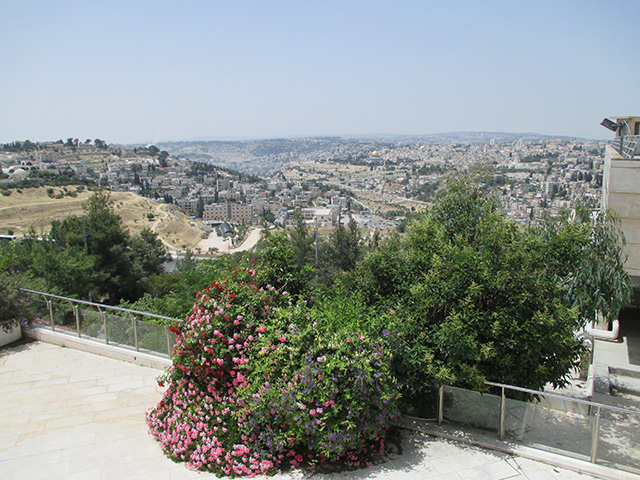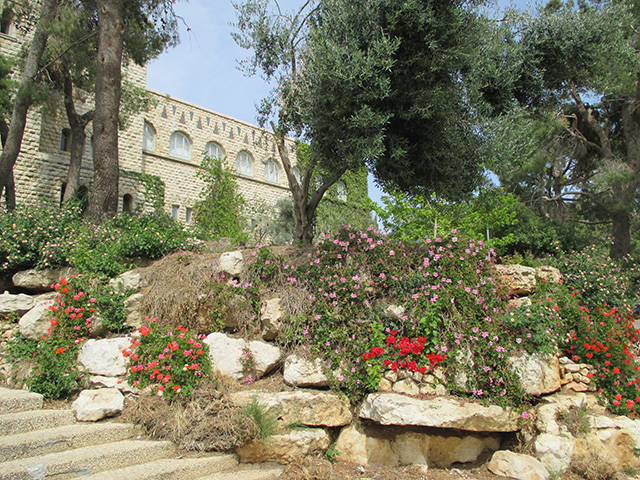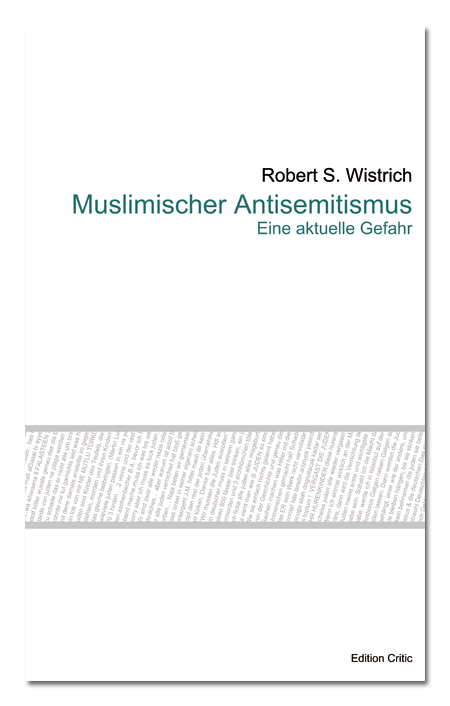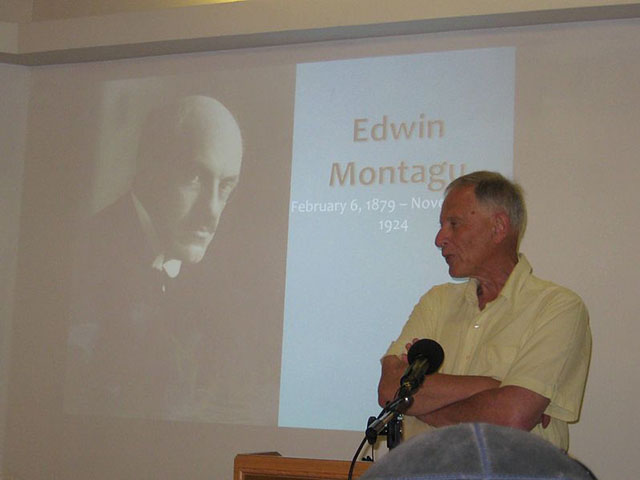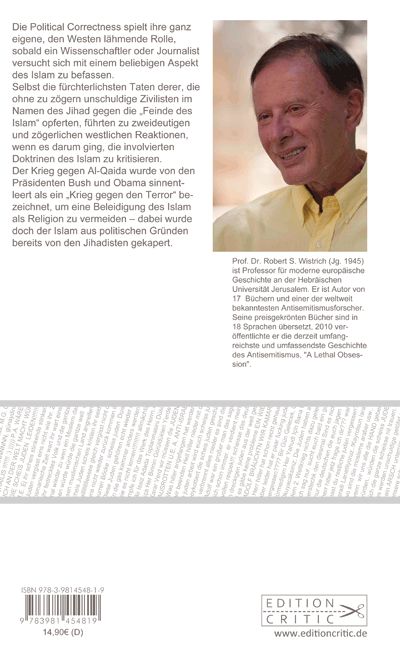Von Clemens Heni
Am 27. Januar 2015 wird in Auschwitz der 70. Jahrestag der Befreiung durch die Rote Armee der Sowjetunion (UdSSR) begangen. Während die Befreier von Auschwitz nicht vertreten sein werden, jedenfalls nicht mit dem russischen Staatspräsidenten Putin, wird die Täternation dabei sein. In einer aufgeheizten Stimmung in Europa und dem Westen wird so getan, als ob „Steven Spielberg oder die Amerikaner“ Auschwitz befreit hätten, wie es der Journalist und ZEIT-Korrespondent in Berlin Mark Schieritz auf Phönix im Fernsehen überspitzt auf den Punkt brachte und einforderte, doch gerade jetzt die Rolle Russlands bzw. der Sowjetunion zu würdigen bei der Niederschlagung Nazi-Deutschlands und der Befreiung von Auschwitz-Birkenau.
Götz Aly wiederum, das getätschelte enfant terrible der deutschen Mainstream-Geschichtswissenschaft, tut so als ob ihn die Nicht-Einladung Putins stören würde, dabei hat doch Aly durch seine eigene Forschung seit Jahrzehnten einer Ökonomisierung des Holocaust das Wort geredet („Vordenker der Vernichtung“), 2008 rot und braun analogisiert, Kritik am Springer-Konzern 1968 mit der Bücherverbrennung 1933 gleichgesetzt und somit geholfen, das antikommunistische und die Shoah trivialisierende Feld vorzubereiten, das heute gegen „die Russen“ zurückschießt.
Dabei ist dieser Jahrestag US-Präsident Barack Obama völlig wurscht, er hatte den Termin nicht eingeplant (woher hätte er von diesem für ihn x-beliebigen x-ten Jahrestag auch vorab wissen sollen?) und ist in Indien. Nach einer aktuellen Studie der Bertelsmann-Stiftung wollen 81% der Deutschen nichts mehr vom Holocaust hören, den Blick in die schwarzrotgoldene Zukunft gerichtet.
Die Bundesrepublik Deutschland (BRD) wird beim Gedenken in Auschwitz durch zwei ehemalige DDR-Bürger vertreten. Nachdem es mit dem „Triumph des Willens“ nicht in jeder Hinsicht klappte, siegt heute der „Triumph des guten Willens“ (Eike Geisel) auf allen Kanälen, die „Nationalisierung der Erinnerung“ hat oberste kulturindustrielle Priorität.[1]
Bundespräsident Gaucks Behauptung, die ganz normalen Deutschen hätten 1945 als „Befreiung“[2] verstanden, widerlegt er in seiner Autobiografie 2009 hingegen selbst: dort beschreibt er, wie er zu Weihnachten 1944 vom „Weihnachtsmann“ einen hölzernen Panzer bekommen hat, weil er „ohne zu haspeln“ ein Gedicht aufsagen konnte.[3] Seine Eltern fürchteten die Rote Armee und die Sowjets („Russen“) und sehnten keineswegs eine Befreiung – von was, dem antisemitischen, völkischen, nationalsozialistischen Selbst? – herbei. Gauck setzt nicht nur obsessiv und mit System die DDR mit dem Nationalsozialismus gleich, nein: er fantasiert zudem, die Nazis seien ganz wenige böse Leute gewesen, die das ‚deutsche Volk‘ beherrscht hätten.
Der Bundespräsident steht im Trend einer neuen, zukunftsträchtigen Verharmlosung des Holocaust. In seinen längst bekannten und dokumentierten Reden und Publikationen diminuiert Gauck den Holocaust gleich mehrfach: Er setzt den Nationalsozialismus mit der DDR gleich und banalisiert dadurch ersteren zu einem bloßen ‚Unrechtsregime‘; er unterstellt Kritikern, welche die Shoah in ihrer Präzedenzlosigkeit und Einzigartigkeit analysieren, einen „psychischen Gewinn“, womit die modernen Gottlosen ein ‚inneres Loch‘ stopften. Gauck ist als politischer Aktivist bei der Veröffentlichung des „Schwarzbuchs des Kommunismus“ (1998)[4], der „Prager Deklaration“ (2008) und der Initiative „23. August 1939“ (2009) an vorderster Front mit dabei. Angesichts der „Prager Deklaration“ und der Gleichsetzung von rot und braun sprechen Experten in Jüdischen Studien wie Alvin H. Rosenfeld aus USA vom „Ende des Holocaust“[5], was auch die kulturindustrielle Verkitschung Anne Franks betrifft und viele weitere Facetten der Trivialisierung und Universalisierung der Shoah.
In Auschwitz wurden ca. 1,3 Millionen Menschen industriell vernichtet, darunter ca. 1,1 Millionen Juden. Die Opfer des präzedenzloses, nie dagewesenen Verbrechens, werden durch Gauck geradezu verhöhnt, wenn dieser Mann davon redet, jene, die gerade den präzedenzlosen Charakter der Shoah betonten, würden das als „psychischen Gewinn“ in einer gottlosen Welt verbuchen.[6]
Man kann also super stolzdeutsch den „Antikommunismus“ hochleben lassen und de facto die Präzedenzlosigkeit von Auschwitz und die Alleinschuld des Nationalsozialismus am Zweiten Weltkrieg zerreden – ja, zerreden – wenn man es nur wirklich will. Und Richard Herzinger will es und tut es und Springer freut es. Damit entwirklicht Herzinger die historische Leistung der Roten Armee, am 27. Januar 1945 das KZ und Vernichtungslager Auschwitz befreit zu haben. Für ihn ist die Betonung der Leistung der Roten Armee reine Propaganda der Kommunisten, da Stalin schon vor der Shoah ähnlich schlimme Verbrechen begangen habe. Herzinger schreibt im Geiste von Ernst Nolte und natürlich dessen Enkel/Sohn Timothy Snyder (Yale), dem Bestsellerautor von „Bloodlands“, einem Gebiet mit über 14 Millionen Toten zwischen 1932 und 1945, das Snyder erfindet, um die Einzigartigkeit des Holocaust zu leugnen bzw. zu trivialisieren.
Es gibt ein Denkmal in Israel, das in Gedenken an die heroische Leistung der Roten Armee und der jüdischen Soldaten in der Roten Armee errichtet und 2012 eingeweiht wurde:
“This is an opportunity to thank the Red Army,” said Peres. “Had it not defeated the Nazi beast then it is doubtful we would be standing here today. In World War II the Soviet Union prevented the world from surrendering.”
Zum obsessiven Antikommunismus der Liberalen, Bürgerlichen, Konservativen und Reaktionäre kommt jedoch noch ein Element hinzu. Die Kritik am Islamismus und seiner Pro-Nazi-Geschichte ist bedeutsam, gerade in Zeiten des Jihad, des muslimischen Antisemitismus und der Islamischen Staates (IS). Doch man kann es auch unwissenschaftlich und politisch grotesk machen. Und dann geht es um Geschichtsklitterung und die Stilisierung des Großmufti von Jerusalem, Amin al-Husaini, zum Obernazi, der Hitler erst zum Holocaust inspirieren musste. So schreiben die Nahostforscher Barry Rubin (1950–2014) und Wolfgang G. Schwanitz 2014 in einem Buch bei dem renommierten Verlag Yale University Press, es sei für Hitler bis zum Besuch von al-Hussaini am 28. November 1941 nicht klar gewesen, ob die Juden nur abgeschoben oder vernichtet werden sollten:
„But there was another consequence of the al-Husaini-Hitler meeting [28. Nov 1941, d.V.] to cement their alliance. A few hours after seeing the grand mufti Hitler ordered invitations sent for a conference to be held at a villa on Lake Wannsee. The meeting’s purpose was to plan the comprehensive extermination of all Europe’s Jews. Considerations of Muslim and Arab alliances, of course, were by no means the sole factor in a decision that grew from Hitler’s own anti-Semitic obsession. But until that moment the German dictator had left open the chance that expulsion might be an alternative to extermination.”[7]
Die beiden Autoren ignorieren großzügig nahezu die gesamte Holocaust- und Antisemitismusforschung, man denke nur an Hans Safrians Studien über Eichmann[8], Daniel J. Goldhagens Doktorarbeit über „Hitler’s Willing Executioners“ mit ihrem zentralen Satz „No Germans – No Holocaust“[9], oder Jochen Böhlers Dissertation „Auftakt zum Vernichtungskrieg. Die Wehrmacht in Polen 1939“, in der er z.B. anhand von Bundesarchivakten Einträge von deutschen Soldaten dokumentiert, die in antisemitischer Diktion ihre Eindrücke beim Einmarsch in Polen 1939 zum Ausdruck brachten.[10] Auf diesem antisemitischen Feld baute später der Vernichtungskrieg der Wehrmacht gegen die Sowjetunion und die Juden ab Juni 1941 („Unternehmen Barbarossa“) auf.
Doch nun wie Rubin und Schwanitz den Großmufti al-Husaini, ein ausgewiesener Antisemit und Freund Hitlers, als Stichwortgeber für die „Endlösung“ herbei zu fantasieren, das entbehrt jeder Grundlage und desavouiert sowohl die Holocaust- wie die Islamismusforschung.
Bedeutend und von herausgehobenem Interesse sind hingegen die Erkenntnisse der jüngsten kritischen Antisemitismusforschung. In ihrer Studie „Antisemitismus im Reichstag. Judenfeindliche Sprache in Politik und Gesellschaft der Weimarer Republik“ analysiert die Historikerin Susanne Wein[11] erstmals die Protokolle der Reichstagsdebatten, bettet sie in die politische Kultur der Zeit ein und zeigt wie offen und auch codiert der Antisemitismus in der Weimarer Republik von rechts bis links und der Mitte war. Sie schreibt über Zeitungsberichte bezüglich eines der großen Skandale der Republik, den „Barmatskandal“ Ende 1924/1925, und die antisemitischen Implikationen:
„Die Artikel der Barmatskandalisierung verwenden das physiognomische antisemitische Stigma der großen Nase nicht explizit, doch z.B. der Satz ‚Kutisker […] riecht herum‘ zentriert auf das Olfaktorische und degradiert die Person wiederum zu einem Tier, das herumschnüffelt. Die Bildsprache rekurriert demnach neben dem vorherrschenden Bezug auf die Botanik auch auf identifizierende Metaphern aus der Zoologie. Drittens steckt Gestank im Bild des kranken Volkskörpers. Dieser hat je nach Dramatisierung des jeweiligen Artikels eine eiternde Stelle oder ist mit Eiterbeulen übersät und entsprechend gering werden die Heilungschancen eingeschätzt, wobei in jedem Fall sofort reagiert werden muss. Alle Artikel dieser Art beinhalten den dringenden Aufruf zum Handeln, um die Krankheit zu bekämpfen, bevor es zu spät ist und die drastischen Bilder greifen auf Vernichtungsvokabular zurück. Der korrumpierende ‚(ost-)jüdische‘ Kapitalist wird vermischt mit dem Bild des ‚fremden Ostjuden‘, der Seuchen einschleppe. Beide Figuren „hängen“ am bereits durch den Krieg geschwächten deutschen Volkskörper und ’saugen ihn aus‘. Dieses aggressiv-antisemitische Bild aus der Medizin, das ‚den Juden‘ als Erreger und Überträger von Krankheiten entmenschlicht und ihn zum lebensunwerten Parasiten macht, bewegte sich noch auf der verbalen Ebene, hatte jedoch eine Kompatibilität zur künftigen nationalsozialistischen Tat.“[12]
Diese Analyse ist entscheidend, um die Vorgeschichte von Auschwitz und der Shoah besser verstehen zu können. Das erklärt nicht Auschwitz, aber den Weg dahin.
Auch Forschungen über den auf die Vernichtung der Juden zielenden Antisemitismus eines Achim von Arnim in seiner Rede „Über die Kennzeichen des Judentums“, den er vor der „Christlich-deutschen Tischgesellschaft“ im Frühjahr 1811 gehalten hat, der von dem Literaturwissenschaftler Heinz Härtl als der „schlimmste antisemitische Text der deutschen Romantik“ bezeichnet wurde, worauf die Historikerin Susanna Moßmann hinweist, sind von enormer Relevanz.[13]
Hier zeigte sich das christliche deutsche „Abendland“ und jeder einzelne Teilnehmer und jede einzelne Teilnehmerin oder Sympathisant und kuschelnder, sie „ernst“ nehmender Gesprächspartner der völkischen PEGIDA (und verwandter)-Aufmärsche und des Extremismus der Mitte ist in Haftung zu nehmen für diese antisemitische Tradition im Geschwätz vom schönen deutschen „Abendland“. Und jene Anti-PEGIDAisten, die ihren Judenhass als Antizionismus kaschieren, sind die andere Seite des gleichen, heutigen Deutschlands. Verschwörungswahnsinnige agitieren immer häufiger auch offen gegen Juden, Geldwirtschaft oder das „Finanzkapital“.
Das sind nur einige Aspekte, die angesichts der 70. Wiederkehr der Befreiung des Konzentrations- und Vernichtungslagers Auschwitz in den Blick zu nehmen wären.
Von einigen wenigen Forscherinnen abgesehen, sind es heute fast nur noch Satiriker, die in der Lage sind und die den Mut haben, die Realität in Worte zu fassen, hier die Satire-Redaktion von SpiegelOnline:
„Bundespräsident Gauck wird dagegen selbstverständlich bei der Gedenkveranstaltung vertreten sein. Schließlich waren es deutsche Soldaten, die sich den Okkupanten heroisch entgegenwarfen. Außerdem wären Auschwitz und somit auch alle damit verbundenen Feierlichkeiten ohne Deutschland niemals möglich gewesen.“
Für sachdienliche Hinweise und intellektuelle Inspiration danke ich Karl-Hans Wieser und Thomas Weidauer.
[1] Eike Geisel (1998): Triumph des guten Willens. Gute Nazis und selbsternannte Opfer. Die Nationalisierung der Erinnerung. Hg. von Klaus Bittermann, Berlin: Edition Tiamat.
[2] Joachim Gauck (2005a): Schuld und Schuldverarbeitung in Übergangsgesellschaften, in: Rektor der Universität Augsburg (Hg.) (2006), Gesellschaftspolitisches Engagement auf der Basis christlichen Glaubens. Laudationes und Festvorträge aus Anlass der Ehrenpromotionen von Prof. Dr. Andrea Riccardi und Dr. h.c. Joachim Gauck am 17. Juni 2005 an der Katholisch-Theologischen und an der Philosophisch-Sozialwissenschaftlichen Fakultät der Universität Augsburg, Augsburg: Selbstverlag, 45–58, 52.
[3] Joachim Gauck (2009): Winter im Sommer – Frühling im Herbst. Erinnerungen, in Zusammenarbeit mit Helga Hirsch, München: Siedler, 21: „Weihnachten 1944 bestand ich meinen ersten öffentlichen Auftritt auf einer wahrscheinlich von der nationalsozialistischen Frauenschaft veranstalteten Weihnachtsfeier. Ich vermochte ein ganzes Weihnachtsgedicht aufzusagen, ohne mich zu verhaspeln und ohne zu stocken: ‚Von drauß, vom Walde komm ich her…‘ Der Weihnachtsmann war so gerührt, dass er versprach, nach der Feier noch bei mir zu Hause vorbeizukommen und mir ein spezielles Geschenk zu übergeben. Er hielt sein Versprechen: Ich bekam einen weiteren Panzer aus Holz.“ Wer sich im Alter so scheinbar wehmütig an die nazistischen Kriegszeiten erinnert, hat keine Distanz zur deutschen Geschichte. Denn das Narrativ wird nicht beispielsweise mit einer Reflexion gebrochen, was vierjährige jüdische Jungen und Mädchen zur gleichen Zeit erleben mussten.
[4] Stéphane Courtois (Hg.) (1997)/1998: Schwarzbuch des Kommunismus. Unterdrückung, Verbrechen und Terror. Mit dem Kapitel „Die Aufarbeitung des Sozialismus in der DDR“ von Joachim Gauck und Ehrhardt Neubert, München/Zürich: Piper. Die Originalausgabe erschien 1997 in Paris bei der Editions Robert Laffont; Joachim Gauck (1998): Vom schwierigen Umgang mit der Wahrnehmung, in: Courtois (Hg.), 885–894.
[5] Alvin H. Rosenfeld (2011): The End of the Holocaust: Bloomington/Indianapolis: Indiana University Press.
[6] „Unübersehbar gibt es eine Tendenz der Entweltlichung des Holocaust. Das geschieht dann, wenn das Geschehen des deutschen Judenmordes in eine Einzigartigkeit überhöht wird, die letztlich dem Verstehen und der Analyse entzogen ist. Offensichtlich suchen bestimmte Milieus postreligiöser Gesellschaften nach der Dimension der Absolutheit, nach dem Element des Erschauerns vor dem Unsagbaren. Da dem Nichtreligiösen das Summum Bonum – Gott – fehlt, tritt an dessen Stelle das absolute Böse, das den Betrachter erschauern lässt. Das ist paradoxerweise ein psychischer Gewinn, der zudem noch einen weiteren Vorteil hat: Wer das Koordinatensystem religiöser Sinngebung verloren hat und unter einer gewissen Orientierungslosigkeit der Moderne litt, der gewann mit der Orientierung auf den Holocaust so etwas wie einen negativen Tiefpunkt, auf dem – so die unbewusste Hoffnung – so etwas wie ein Koordinatensystem errichtet werden konnte. Das aber wirkt ‚tröstlich‘ angesichts einer verstörend ungeordneten Moderne. Würde der Holocaust aber in einer unheiligen Sakralität auf eine quasi-religiöse Ebene entschwinden, wäre er vom Betrachter nur noch zu verdammen und zu verfluchen, nicht aber zu analysieren, zu erkennen und zu beschreiben.“ (Joachim Gauck (2006): Welche Erinnerungen braucht Europa?, http://www.bosch-stiftung.de/content/language1/downloads/Stiftungsvortrag_Gauck_fuer_Internet.pdf (eingesehen am 25. Januar 2015, S. 14f.)).
[7] Barry Rubin & Wolfgang G. Schwanitz (2014): Nazis, Islamists, and the Making of the Modern Middle East, New Haven: Yale University Press, ohne Seitenangabe (E-Book). Nun: Der Holocaust war Ende November 1941 längst im Gang, wie in der Ukraine in Babi Yar, unweit von Kiew, wo am 29./30. September 1941 in einem der größten Massaker der Shoah über 30.000 Juden ermordet wurden. In Litauen gab es Pogrome an den Juden noch bevor die Wehrmacht nach dem Überfall auf die Sowjetunion am 22. Juni 1941 überall angekommen war, wie erwähnt sind auch Morde an Juden im Zuge des Überfalls auf Polen 1939 Teil des Holocaust. Im Februar 2014 hat David Mikics den Autoren wegen dieser These, der Mufti habe Hitler quasi die Idee zur „Endlösung“ und zur Wannseekonferenz gegeben, scharf kritisiert. Schwanitz‘ Replik entkräftet die Kritik überhaupt nicht.
[8] Hans Safrian (1993)/1997: Eichmann und seine Gehilfen, Frankfurt a.M.: Fischer.
[9] Daniel Jonah Goldhagen (1996): Hitlers willige Vollstrecker: ganz gewöhnliche Deutsche und der Holocaust, Berlin: Siedler.
[10] Jochen Böhler (2006): Auftakt zum Vernichtungskrieg. Die Wehrmacht in Polen 1939, Frankfurt a.M.: Fischer, 46–48.
[11] Susanne Wein (2014): Antisemitismus im Reichstag. Judenfeindliche Sprache in Politik und Gesellschaft der Weimarer Republik, Frankfurt a.M. u.a.: Peter Lang (Zivilisationen & Geschichte, hg. von Ina Ulrike Paul und Uwe Puschner, Band 30; zgl. Diss. FU Berlin 2012).
[12] Wein 2014, 197.
[13] Susanna Moßmann (1996): Das Fremde ausscheiden. Antisemitismus und Nationalbewußtsein bei Ludwig Achim von Arnim und in der »Christlich-deutschen Tischgesellschaft«, in: Hans Peter Herrmann/Hans-Martin Blitz/Dies. (1996): Machtphantasie Deutschland. Nationalismus, Männlichkeit und Fremdenhaß im Vaterlandsdiskurs deutscher Schriftsteller des 18. Jahrhunderts, Frankfurt/Main: Suhrkamp Taschenbuch, S. 123–159, 152.


